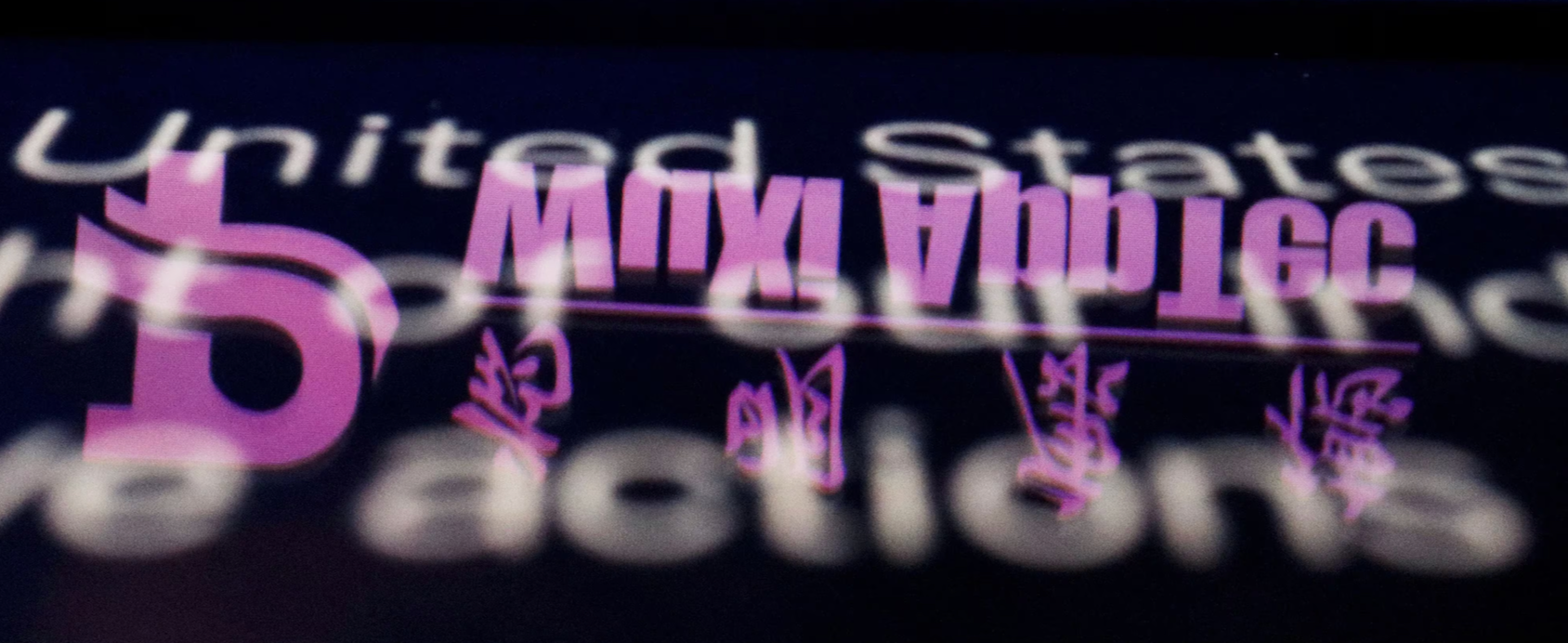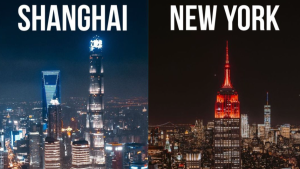Biotech Decoupling: US Seeks to Cut Crucial Chinese Ties…At What Cost?

Key Takeaways:
Sino-US decoupling in biopharma
In a significant development on December 20, 2023, US Senator Gary Peters (D-Michigan) presented the Biosecurity Act proposal, aiming to impose restrictions on the US government’s procurement and utilization of equipment and services from specific biotechnology companies, including WuXi AppTec. The bill also seeks to prohibit government agencies from entering into, renewing, or expanding contracts with these targeted companies.
On February 12, 2024, a group of bipartisan members of Congress urged the Biden administration to launch an investigation into WuXi AppTec and its subsidiary, WuXi Biologics.
Following intense scrutiny, the Biosecurity Act, officially known as the BIO-CURE Act[1], gained significant support. On March 6, during a hearing of the US Senate Homeland Security Committee, the bill passed almost unanimously with a vote of 11-1. It effectively forbids federal agencies from engaging in contracts with foreign biotech companies, including WuXi AppTec and BGI, due to concerns regarding national security.
The momentum continued on May 15, as the Biosecurity Act (H.R. 8333)[2] successfully cleared the US House Committee on Oversight and Reform with a resounding vote of 40-1.
Unlike the highly charged hearings surrounding platforms like TikTok, the discussions on the Biosecurity Act were notably less heated, devoid of dramatic storylines. The deliberations on the bill concluded swiftly within a mere 10 minutes, shifting the focus to other pressing matters such as gene data collection and potential risks to national security. Consequently, WuXi AppTec and WuXi Biologics, integral members of the WuXi series companies and prominent players in contract drug research, development, and manufacturing, faced sanctions for allegedly posing a threat to US biosecurity. This sanctioning could potentially result in the loss of a substantial number of orders from the US market.
Responding promptly on May 16, WuXi AppTec[3] strongly opposed the prejudiced and unjust definition imposed without due process. The company emphasized that its current operations do not involve human genomics services and denied posing any national security risks to the US or any other nation.
However, there is a silver lining as the approved version of the bill is an updated draft. Notably, it extends exemptions for existing contracts and products until January 1, 2032, providing the WuXi companies with an eight-year grace period or a lifeline. This grace period offers some relief and stability amidst the challenging circumstances.
Deeply Integrated
But why has the bill extended such a lifeline to WuXi? The answer may lie in the survey conducted by Biotechnology Innovation Organization (BIO), a leading biotechnology organization in the United States.
The organization has submitted a comprehensive survey[4] to lawmakers, shedding light on the potential consequences of severing ties with Chinese Contract Development and Manufacturing Organizations (CDMOs), especially WuXi series companies. The survey, conducted among numerous American pharmaceutical companies, reveals that finding alternative service providers to replace China’s CDMOs could take up to eight years. Immediate termination of these relationships would significantly impact long-standing drug supply chains in the United States.

The Biotechnology Innovation Organization emphasized the significant reliance of American pharmaceutical and biotech companies on Chinese CDMOs and cautioned against premature termination of these relationships. The survey, encompassing 134 American companies, revealed that over 100 of them had signed contracts or product agreements with Chinese manufacturers or manufacturers owned by Chinese entities. The report further underlined the fact that millions of individuals rely on Chinese pharmaceutical companies.
The extent of WuXi’s involvement in critical U.S. drug supply chains is even deeper than reported. Supply chain data firms QYOBO and Pharm3r, along with public records, reveal that WuXi and affiliates manufacture active ingredients for many essential American medicines.
These include Imbruvica, a groundbreaking $5.9 billion leukemia treatment hailed by Dr. Mikkael Sekeres as “truly revolutionary” in extending patient lives. WuXi factories produce the core ingredient ibrutinib for this Janssen/AbbVie drug.
Another is Jemperli by GSK, an FDA-approved therapy that improves survival for some endometrial cancer patients when combined with standard care, according to Dr. Amanda Fader of the Society of Gynecologic Oncology.
Possibly WuXi’s biggest impact is making Trikafta, credited with clearing mucus buildup and adding decades to the lives of 40,000 U.S. cystic fibrosis patients. Industry sources indicate WuXi also supports Eli Lilly’s popular obesity drugs.
Other vital medicines like HIV, ovarian cancer and Pompe disease treatments also rely on WuXi’s manufacturing capabilities, underlying its embeddedness throughout American healthcare supply chains.
Dr. Alexander Kolchinsky, a co-founder of another contract development and manufacturing company, explains WuXi’s comprehensive services. They assist biotech firms from the initial concept through production, handling tasks like molecule creation, testing, and safety assessment. “Your U.S. company has the idea and raises the money and owns the rights to the drug,” He said. “But they may count on WuXi or similar contractors for almost every step of the process.”
Last year’s financial reports[5] also showcased the substantial role of WuXi AppTec in the US pharmaceutical market. With 64.8% of WuXi AppTec’s revenue originating from American clients and WuXi Biologics contributing 47.4% of the overall revenue from the North American market, even minute policy changes in the US market can have far-reaching implications for the organizational structure and operational dynamics of the WuXi series companies, extending their influence throughout the entire industry.
The passage of the exemption period signifies the indispensability of Chinese CDMO companies, such as WuXi AppTec, in the global chain of innovation for pharmaceuticals. While the relationship may not be unbreakable, the high replacement cost is an undeniable factor that the US pharmaceutical industry cannot ignore.
While China boasts several CDMOs, WuXi AppTec occupies a paramount position for American pharmaceutical companies. Its clientele ranges from emerging biotech firms to industry titans like Gilead. Daniel Kracov, Global Life Sciences Industry Chair at Arnold & Porter, a prominent law firm, noted that “reports indicate they work with 19 out of the top 20 manufacturers.”
Moreover, multiple US biotechnology companies have recently disclosed the potential ramifications of the Biosecurity Act on their operations in their financial reports. For instance, Iovance Biotherapeutics, who recently obtained FDA approval[6] for their adoptive cell therapy targeting metastatic melanoma, has enlisted WuXi AppTec as their manufacturer for commercial-scale production. Iovance highlighted in a filing with the US Securities and Exchange Commission that the bill will adversely affect their drug manufacturing capabilities.
Similarly, Cabaletta Bio, a company specializing in the development of chimeric antigen receptor T-cell products, raised concerns about disruptions in their operations if their contract with WuXi AppTec is terminated or not fulfilled. Cabaletta expressed their intention to rely on other third-party manufacturers to meet their manufacturing needs until they establish their own production facility.
The rise of Chinese CXO
Behind this deeply intertwined relationship of Chinese CDMOs and western pharmaceutical companies is the sobering reality: the latter are outsourcing everything, from drug R&D, manufacturing, to regional sales, to Chinese partners. The western pharma maintains their brands and extensive marketing network, all the while piggybacking the rise of Chinese CXOs for the heavy-lifting in the process of drug discovery. The CXOs, including CDMO, CRO (Contract Research Organization) and CSO (Contract Sales Organization), are the unsung heroes behind the scene, with little to none publicity outside of the pharma industry.
Western Big Pharma’s increasing reliance on Chinese CXOs such as WuXi is the result of China’s unique advantages in pharma and biotech industry.
At the forefront of China’s CXO advantages is its vast patient pool, which serves as a game-changer for clinical trials. China’s massive population provides an unparalleled advantage in patient recruitment, spanning diverse demographics and disease profiles. This large patient base allows for faster recruitment, with the median enrollment speed for patient recruitment in China being 5-7 times faster than in the United States, particularly evident in studies like PD-1/PD-L1 trials. The ease of recruitment translates to lower costs and accelerated trial timelines, while the population diversity allows for more comprehensive clinical studies across various indications.
Cost-efficiency is another crucial factor driving global pharmaceutical R&D to China. The cost structure in China’s pharmaceutical R&D sector offers significant advantages, with clinical trials being 30-60% less expensive than in developed countries. This cost advantage extends to labor, with skilled researchers and technicians available at more competitive rates. Additionally, lower costs for experimental materials and research facilities contribute to overall savings. These cost advantages are attracting international pharmaceutical companies to shift their R&D operations to China, making it a key destination for global CXO capacity transfer.
China’s growing talent pool is meeting global demand in the CXO industry. The sector has cultivated a wealth of skilled professionals, with a new generation of well-trained pharmaceutical R&D experts emerging. Many of these professionals are trained to meet global industry standards and are adept at handling both domestic and international projects. This talent pool is crucial, as human capital accounts for 60-70% of CRO costs and is fundamental to a company’s success.
For multinationals, the exorbitant costs of local research and operations have become an increasingly burdensome issue.
The Chinese CXO industry has been actively involved in outsourcing research services for international pharmaceutical companies since its early stages. Over the past 20 years, cost advantages have been driving the rapid growth of the Chinese CXO industry.
The success of WuXi turns it into the poster kid of Chinese CXO, attracting unwanted attention from US politicians. This success lay in its ability to blend international standards with local advantages. The company tapped into China’s vast pool of highly educated graduates, offering them rigorous training and competitive salaries that were still a fraction of US costs. Combined with China’s strengths in chemical raw material production, this allowed WuXi AppTec to offer services at highly competitive rates without compromising on quality.
The numbers speak for themselves. In 2010, WuXi AppTec’s per capita operating cost was less than half that of its US competitors, giving it a significant edge in the global market.
Meeting the Global Standards
As China’s pharmaceutical regulatory environment continues to evolve, with reforms aimed at streamlining drug approvals and aligning with international standards, the future looks bright for companies like WuXi AppTec.
Regulatory alignment and international collaboration have further enhanced China’s CXO industry. Since joining the International Council for Harmonisation in 2017, China has aligned with global standards, facilitating data sharing and cross-border collaborations. Regulatory changes have simplified the approval process for clinical trials and new drug applications. Moreover, Chinese clinical data is increasingly accepted by global regulatory bodies, enhancing the value of China-based trials.
Technological advancements and infrastructure improvements support China’s CXO industry. Rapid technological progress has led to investments in cutting-edge research facilities and equipment. The integration of digital health technologies, leveraging big data and AI in clinical trials and drug development, further enhances China’s capabilities. Additionally, the country’s telemedicine capabilities are improving patient monitoring and data collection in clinical trials.
China’s unique combination of a vast patient pool, cost efficiencies, growing expertise, regulatory alignment, and technological advancement positions it as a key player in the global CXO landscape. As the pharmaceutical industry continues to seek more efficient and effective ways to develop new drugs, China’s CXO sector is poised to play an increasingly crucial role. This shift not only benefits China’s domestic pharmaceutical industry but also offers significant advantages to global pharmaceutical companies looking to optimize their R&D processes.
Navigating Choppy Waters
These advantages may also help WuXi to address the unprecedented challenges brought on by the U.S. Biosecurity Bill. In fact, WuXi AppTec is demonstrating remarkable resilience and strategic acumen. Dr. Yang Qing, a senior executive at the company, has been vocal about WuXi’s position, stating unequivocally that the accusations are “unfounded and unjust.”
“Since our inception, adapting to external changes has been crucial to our growth,” Dr. Yang explains. “Each challenge has been a baptism of fire, pushing us to evolve and improve.”
Indeed, this latest hurdle seems to be catalyzing a new phase of innovation at WuXi AppTec. The company is actively revamping its operations, business models, and client communication strategies. Despite the uncertainty, most of WuXi’s clients are adopting a wait-and-see approach, a testament to the company’s deeply embedded role in their drug development processes.
“We’re tackling this head-on,” Dr. Yang asserts. “Our in-house team, along with external legal counsel and consultants, are working tirelessly to navigate this situation and interpret the proposed legislation. We stand firm in our compliance with regulations, our protection of client IP, and our openness to audits. We believe WuXi AppTec will continue to empower global pharmaceutical innovation through our CRDMO model.”
While the company remains tight-lipped about specific strategic adjustments, industry insiders suggest that founder Dr. Ge Li is likely to double down on overseas expansion. The grace period provided by the legislation could offer a crucial window for WuXi to bolster its international capabilities through a combination of organic growth and acquisitions.
In fact, WuXi’s global expansion plans were already in high gear. This year alone, the company announced two major overseas production expansions. In January, capacity at the Massachusetts[7] facility was increased by 12,000 liters, on top of the planned 24,000 liters. March saw the groundbreaking of a massive 120,000-liter production base in Singapore[8]. Both projects are slated for completion by 2026, effectively doubling WuXi’s overall capacity with most new additions located overseas – a move seen as a critical step towards international compliance.
The company is also aggressively exploring other international markets. In 2023, revenues in Europe and the Asia-Pacific region grew by 25% and 30% respectively, underscoring WuXi’s global ambitions.
Despite the geopolitical headwinds, WuXi AppTec’s financial performance remains robust. In 2023, the company reported total revenues of 13 billion yuan, with CRO and CMO services accounting for 60% and 40% respectively. Cost control measures have been effective, with operating costs growing at 10%, lower than revenue growth.
Profitability remains healthy, with net profits of 2.5 billion yuan and a net profit margin of 19.2% in 2023. The company continues to invest heavily in capital expenditures, primarily for research and production facilities to meet growing market demand.
Meanwhile, WuXi AppTec is leveraging strategic partnerships with global pharmaceutical giants like Roche to enhance its international reputation and influence. The company is also actively expanding its European footprint through acquisitions and partnerships, successfully entering and growing market share in the region.
With geopolitical risks looming large and the Chinese market being WuXi’s largest outside the U.S., the R&D investments of Chinese pharmaceutical companies have become increasingly critical. These investments will determine whether pharma companies outsource orders to CXO enterprises like WuXi AppTec.
Most large and medium-sized domestic pharmaceutical companies, which form a significant part of WuXi’s client base, can sustain their R&D investments through product sales cash flows. However, the smaller and startup companies that WuXi has been courting in recent years rely heavily on external financing for R&D. With the primary financing market for pharmaceuticals in China still sluggish, these companies face significant funding pressures, potentially leading to reduced or halted R&D projects.
Looking Ahead: Opportunities Amidst Challenges
Despite the current challenges, the future holds promise for WuXi AppTec. The continued growth of the Chinese pharmaceutical market and supportive policies provide significant development opportunities. The Chinese CRO market is projected to reach 60 billion yuan by 2025, with an average annual growth rate of 15%.
As WuXi AppTec navigates these turbulent waters, it’s clear that the company’s strategy of deepening its domestic market presence, expanding international operations, strengthening technological innovation, and optimizing supply chain management is positioning it for sustainable growth. If the primary financing market for pharmaceuticals in China shows consistent improvement over the coming months, it could lead to increased demand for outsourced R&D services. As the leading CXO enterprise in China, WuXi AppTec is well-positioned to capitalize on this potential upturn, potentially securing more orders and reinforcing its market leadership.
In the ever-evolving landscape of global pharmaceuticals, WuXi AppTec’s journey serves as a compelling case study of resilience, innovation, and strategic foresight. Just like Huawei before it, WuXi AppTec may be able to weather the storm eventually, and adapt itself to the new reality as the Sino-US tech war unfolds and decoupling continues. As the company gradually evolves, all eyes will be on how it navigates the complex interplay of geopolitics, market dynamics, and technological innovation in the years to come.
[1] https://www.congress.gov/bill/118th-congress/house-bill/7085/text
[2] https://www.congress.gov/bill/118th-congress/house-bill/8333/text
[3] https://static.wuxiapptec.com/6d/20240516/VOLUNTARY%20ANNOUNCEMENT.pdf
[4] https://www.bio.org/gooddaybio-archive/bio-survey-reveals-dependence-chinese-biomanufacturing
[5] https://static.wuxiapptec.com/fc/20240318/WXAT%202023%20Annual%20Results%20Presentation%2020240318.pdf
[6] https://www.prnewswire.com/news-releases/wuxi-advanced-therapies-receives-fda-approval-to-manufacture-iovances-amtagvi-lifileucel-for-advanced-melanoma-302065790.html
[7] https://www.prnewswire.com/news-releases/wuxi-biologics-to-increase-manufacturing-capacity-in-massachusetts-302028322.html
[8] https://www.pharmaceutical-technology.com/projects/wuxi-biologics-crdmo-manufacturing-facility-singapore/



